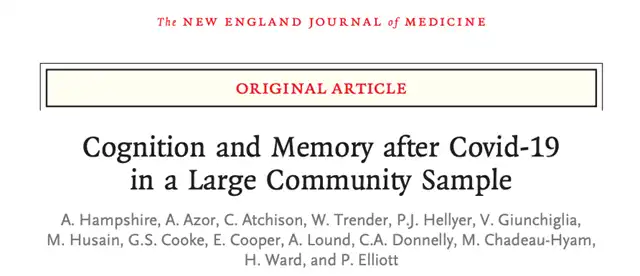COVID-19 Infection Linked to Mild but Long-Term Effects on Cognitive and Memory Abilities
- Normal Liver Cells Found to Promote Cancer Metastasis to the Liver
- Nearly 80% Complete Remission: Breakthrough in ADC Anti-Tumor Treatment
- Vaccination Against Common Diseases May Prevent Dementia!
- New Alzheimer’s Disease (AD) Diagnosis and Staging Criteria
- Breakthrough in Alzheimer’s Disease: New Nasal Spray Halts Cognitive Decline by Targeting Toxic Protein
- Can the Tap Water at the Paris Olympics be Drunk Directly?
COVID-19 Infection Linked to Mild but Long-Term Effects on Cognitive and Memory Abilities
- Should China be held legally responsible for the US’s $18 trillion COVID losses?
- CT Radiation Exposure Linked to Blood Cancer in Children and Adolescents
- FDA has mandated a top-level black box warning for all marketed CAR-T therapies
- Can people with high blood pressure eat peanuts?
- What is the difference between dopamine and dobutamine?
- How long can the patient live after heart stent surgery?
COVID-19 Infection Linked to Mild but Long-Term Effects on Cognitive and Memory Abilities
Infection with SARS-CoV-2, the virus that causes COVID-19, may lead to poor memory, difficulty in thinking or focusing (commonly referred to as “brain fog”), which has led to concerns that COVID-19 may result in persistent cognitive impairments.
However, objective data regarding cognitive performance after COVID-19 has been largely lacking, and it remains unclear how long these cognitive impairments might last and which cognitive functions are most vulnerable.
On February 29, 2024, researchers from Imperial College London published a study titled “Cognition and Memory after Covid-19 in a Large Community Sample” in the prestigious medical journal, the New England Journal of Medicine (NEJM).
This latest study indicates that compared to individuals who have not been infected with the novel coronavirus, COVID-19 survivors exhibit minor deficits in cognitive and memory tasks, with greater cognitive impairments observed in those who were hospitalized, experienced long COVID symptoms, or were infected with early virus strains.

These findings suggest that COVID-19 infection may impact individuals’ cognitive and memory abilities, with these effects potentially lasting for a year or even longer.
The study, led by Imperial College London and known as REACT Long COVID, recruited over 140,000 participants, many of whom experienced varying degrees of severity and persistence of COVID-19. Participants were required to perform at least one cognitive task, involving an innovative online cognitive assessment on the Cognitron platform, which includes tasks that can detect subtle changes in different aspects of brain function, such as memory, reasoning, executive function, attention, and impulsivity.
After controlling for variables such as age, demographics, and medical history, the analysis revealed that even COVID-19 patients with relatively short durations of illness exhibited minor deficits in cognition and memory that could still be detected one year or more after infection. For patients with symptoms lasting 12 weeks or longer (long COVID patients), those hospitalized, or those infected with one of the early variant strains of the SARS-CoV-2 virus, these deficits were more pronounced. Those with longer but resolved symptoms showed similar deficits in cognitive assessment as those with shorter illness durations.
These results suggest that COVID-19 is associated with several cognitive-related deficits, particularly in memory, such as the ability to remember objects seen a few minutes earlier. Researchers believe this may be due to difficulties in forming new memories rather than accelerated forgetting. Additionally, these participants showed minor deficits in tasks requiring spatial planning or language reasoning, among others. Encouragingly, the study indicates that individuals whose COVID-19 symptoms have resolved may experience some improvement in cognitive function, reaching levels similar to those who only experienced brief symptoms.
The research team noted that the potential long-term impact of COVID-19 on cognitive function has been a focus of concern for the public, healthcare professionals, and policymakers. However, until now, objectively measuring these impacts in large-scale population samples has been challenging. This study, through the use of an online platform for large-scale cognitive and memory testing, was able to detect minor but measurable deficits in cognitive task performance.
Link to the paper: NEJM
COVID-19 Infection Linked to Mild but Long-Term Effects on Cognitive and Memory Abilities
(source:internet, reference only)
Disclaimer of medicaltrend.org
Important Note: The information provided is for informational purposes only and should not be considered as medical advice.



